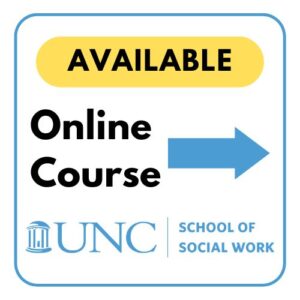Description:

Individuals who experienced trauma, and especially those with complex PTSD, can become disconnected from their somatic experience, which decreases their ability to regulate internal states. A growing body of research on the psychology and neurobiology of trauma supports the value of yoga practices on healing the physical, visceral and body-based dimensions of trauma. Talk therapists, however, often lack the confidence or skills to do this. In this workshop, Barbara Vosk makes yoga accessible; therapists do not need to be yoga masters to draw from these practices, and clients do not need to be able to put an ankle behind their ear to reap benefits.
Dr. Vosk will introduce yoga practices of breath work and mindfulness meditation that extend what you might already be doing as a mindful therapist, and demonstrate how to use these to help ground individuals in the here and now. Drawing from a trauma-sensitive approach, she will also model the teaching of physical movement and forms that support the development of a friendly and non-demanding relationship with one’s body, using language that encourages choice and gently invites exploration and experimentation.
Trainer:
 Barbara Vosk, Ph.D., is a clinical psychologist in private practice in Raleigh with more than 30 years of experience working with individuals with trauma. She began practicing yoga in 2001 as part her commitment to exercise, and soon became passionate about it when she discovered yoga’s deeper healing qualities–reducing stress, expanding mental flexibility, and cultivating resilience in the face of life’s challenges. In 2011, she completed the 285-hour teacher training at Blue Lotus Yoga and Movement Arts in Raleigh, and completed an additional 300-hour training there in 2017. She completed Level 1 of Judith Lasater’s Restorative Yoga Relax and Renew ® training program, and training in Therapeutic Yoga. She currently teaches Restorative Yoga classes and workshops in several settings in Raleigh. She also co-developed, and regularly offers, a Yoga for Anxiety Relief program, geared towards novices who are interested in exploring how yoga can help manage anxiety symptoms. She is well versed in the work of Bessel van der Kolk, a leader in the research and treatment of PTSD, and has received training in Trauma Sensitive Yoga from David Emerson, who developed, and has published widely, on trauma-sensitive yoga practices. She continues to deepen her practice and understanding of these connections in both her clinical and teaching experiences.
Barbara Vosk, Ph.D., is a clinical psychologist in private practice in Raleigh with more than 30 years of experience working with individuals with trauma. She began practicing yoga in 2001 as part her commitment to exercise, and soon became passionate about it when she discovered yoga’s deeper healing qualities–reducing stress, expanding mental flexibility, and cultivating resilience in the face of life’s challenges. In 2011, she completed the 285-hour teacher training at Blue Lotus Yoga and Movement Arts in Raleigh, and completed an additional 300-hour training there in 2017. She completed Level 1 of Judith Lasater’s Restorative Yoga Relax and Renew ® training program, and training in Therapeutic Yoga. She currently teaches Restorative Yoga classes and workshops in several settings in Raleigh. She also co-developed, and regularly offers, a Yoga for Anxiety Relief program, geared towards novices who are interested in exploring how yoga can help manage anxiety symptoms. She is well versed in the work of Bessel van der Kolk, a leader in the research and treatment of PTSD, and has received training in Trauma Sensitive Yoga from David Emerson, who developed, and has published widely, on trauma-sensitive yoga practices. She continues to deepen her practice and understanding of these connections in both her clinical and teaching experiences.
References:
- Crews, D. A., Stolz-Newton, M., & Grant, N. S. (2016). The use of yoga to build self-compassion as a healing method for survivors of sexual violence. Journal of Religion and Spirituality in Social Work, 35(3), 139-156.
- Emerson, D. (2015). Trauma -Sensitive Yoga in Therapy: Bringing the Body into Treatment. New York: W.W. Norton & Co.
- Emerson, D. (2015). Trauma-sensitive yoga in therapy: Bringing the body into treatment. W. W. Norton & Company.
- Forbes, Bo. (2011). Yoga for Emotional Balance. Boston: Shambhala.
- Gulden, A. W., & Jennings, L. (2016). How yoga helps heal interpersonal trauma: Perspectives and themes from 11 interpersonal trauma survivors. International Journal of Yoga Therapy, 26(1), 21-31.
- Macy, R. J., Jones, E., Graham, L. M., & Roach, L. (2015). Yoga for trauma and related mental health problems: A meta-review with clinical and service recommendations. Trauma, Violence, & Abuse,
- NurrieStearns, M. and NurrieStearns, R.I (2013). Yoga for Emotional Trauma. Oakland: New Harbinger Publications.
- Streeter, C.C., Jensen, J.E., Perlmutter, R.M., Cabral, H.J., Tian, H., Terhune, D.B., Ciraulo, D.A. & Renshaw, P.F. (2007). Yoga Asana Sessions Increase Brain GABA Levels: A Pilot Study. Journal of Alternative and Complementary Medicine, 13 (4): 419-426.
- van der Kolk, B. (2006). Clinical Implications of Neuroscience Research in PTSD. Annals of the New York Academy of Sciences 1-17.
- van der Kolk, B. (2014). The Body Keeps the Score. New York: Viking.
- van der Kolk, B., Stone, L., West, J., Rhodes, A., Emerson, D., Suvak, M., & Spinazzola, J. (2014). Yoga as an adjunctive treatment for posttraumatic stress disorder: A randomized controlled trial. Journal of Clinical Psychiatry, 75(6), E559-E565.
- Warner, E., Spinazzola, J., Westcott, A., Gunn, C., & Hodgdon, H. (2014). The body can change the score: Empirical support for somatic regulation in the treatment of traumatized adolescents. Journal of Child and Adolescent Trauma, 7(4), 237-246.
- Weintraub, Amy (2013). Yoga Skills for Therapists: Mood-Management Techniques to Teach & Practice. Norton Professional Books.